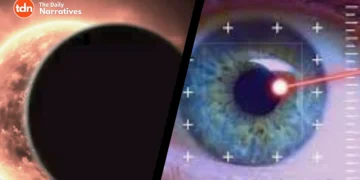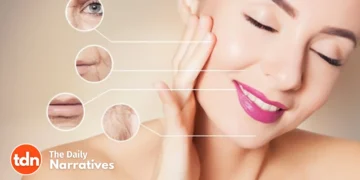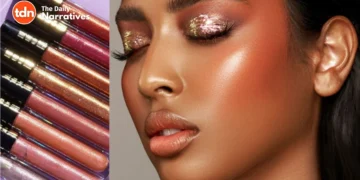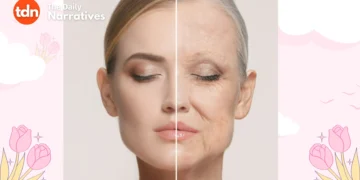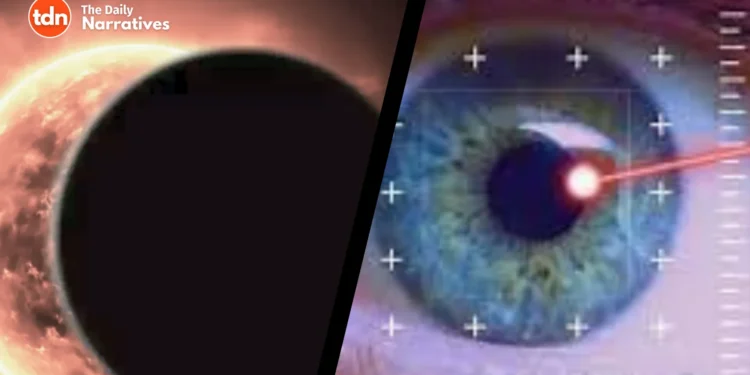Following Mondays eclipse there was an increase in people searching online for eye related injuries while a doctor in New York City reported treating a surge of patients experiencing eye discomfort. Despite warnings from doctors and eye specialists, against looking at the sun it appears that some individuals chose not to disregard this advice.
Staring at the sun without wearing gear like eclipse glasses can harm your eyes and cause serious and lasting damage.
The amazing celestial event was visible across the country. It was important for people to take precautions to protect their eyes from harm while observing it.
Despite the warnings Google search data reveals a rise in terms like ‘retina damage’ ‘eyes hurting’ ‘vision loss ‘blindness and ‘eye damage’ in the hours following the eclipse. The US government cautioned about the dangers for individuals not using eye protection. Those using binoculars or telescopes to view the Moon passing in front of the Sun were advised to use filters.
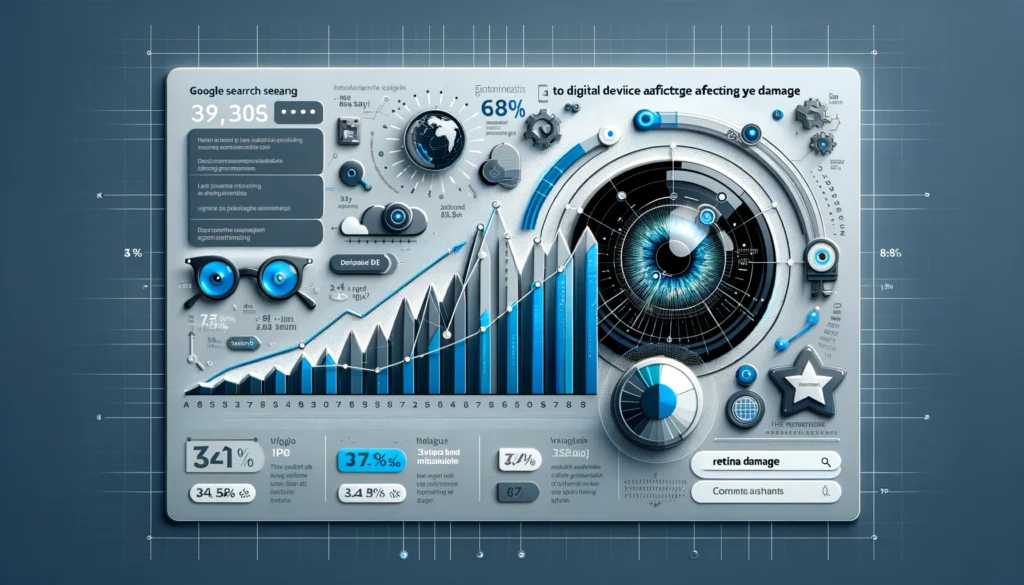
According to NASA failure to do so could lead to severe eye injuries as mentioned on their website, where they stated that it is only safe to look at the Sun without glasses or filters during a solar eclipse when the Moon completely obscures its bright face. The best views of the eclipse were experienced beneath its path of totality in regions, with clear skies.
Many individuals were looking up information, about eye damage after the eclipse based on data from Google.
“The harm done can be permanent if your retina suffers damage from sun exposure without proper eye protection. Some individuals may experience symptoms if their exposure, to sunlight was brief.” You’ve probably been warned against staring at the sun and there is a reason for that caution. Gazing at the sun can harm the retinas in your eyes leading to changes in vision and eye discomfort.
What is solar retinopathy?
Solar retinopathy refers to damage caused by direct sun gazing or exposure to lights such as laser pointers. The retina is an eye tissue, for light perception and sending signals to your brain for sight. Solar retinopathy can result in symptoms, including vision impairment.
However as, per the American Academy of Ophthalmology feeling pain or discomfort after observing an eclipse doesn’t necessarily mean there’s damage to your eyes. “If your eyes feel a bit off after an eclipse it might not indicate retinopathy. Pain or discomfort in your eyes due to eclipse related damage is uncommon because the retina lacks pain nerves ” eye specialists explain. They mention that significant damage would likely show symptoms like spots or blurred vision within four to six hours post event.
How does solar retinopathy present itself?
You can’t determine if you have retinopathy by looking at your eye in the mirror or asking a friend or family member to take a look. However an eye specialist can identify signs of retinopathy during an examination using fundus photography and optical coherence tomography (OCT). These imaging techniques enable healthcare providers to observe any damage or abnormalities, in your retina. For instance they may detect a circular area of damage.
What are the indications of solar retinopathy?
Minor symptoms of retinopathy may include;excessive watering of eyes (Epiphora).
Headaches.
Light sensitivity (Photophobia).
Severe symptoms that may arise from retinopathy include;Blurry vision.
Eye discomfort.
Perceiving straight lines as curved (Metamorphopsia).
Seeing objects as smaller than their size (Micropsia).
Developing a spot in your field of vision (Scotoma).
Is solar retinopathy painful?
As the rays from the sun harm the tissue in your retina you won’t feel pain or any immediate sensation. However following exposure you may experience discomfort and soreness, in your eyes as symptoms of retinopathy. It could take hours or days for these symptoms to manifest and for vision issues to become noticeable.
What are the risks associated with retinopathy?
In some instances solar retinopathy may result in loss of vision. Prolonged and direct exposure, to sunlight can cause harm to the retina. In cases of retinopathy such exposure can lead to permanent visual impairment.
Is it possible for solar retinopathy to recover?
Most cases of retinopathy tend to heal over time. Mild forms often resolve on their own while serious cases may result in vision damage.
Upon diagnosis your eye specialist will likely arrange follow up appointments to monitor your vision. Collaborate with your ophthalmologist to determine the treatment approach for vision correction.
How can I alleviate symptoms of retinopathy?
- If you’re noticing symptoms related to retinopathy it’s advisable to schedule an eye examination with an ophthalmologist. An eye care professional can assist in managing issues like blurry vision, watery eyes and blind spots.
- If light sensitivity is present its recommended to avoid light sources such as screens and sunlight. Wear sunglasses for eye protection.
- For alleviating headaches and eye discomfort consider using, over the counter pain relievers like acetaminophen (Tylenol®) or ibuprofen (Advil®, Motrin®).
- Make sure to consult your healthcare provider before taking any medication. When will my eyes start to feel better? Your symptoms of retinopathy may improve within six months, after exposure. Some individuals may face permanent vision impairment.
How can I avoid retinopathy?
- To prevent retinopathy effectively consider the following measures;
- Wear sunglasses when you’re out in the sun.
- Refrain from staring directly at the sun even with sunglasses on.
- Use specialized solar filters in your glasses or viewers during solar events like eclipses.
- Wear protective eyewear if you are working with a welding torch.
- Avoid shining a laser pointer into your eyes or others eyes.
- Verify the strength of a laser pointer before purchasing one.
Eye specialists mentioned two types of harm that can result from staring at the Sun; outer eye burning known as solar keratitis and inner nerve tissue damage. Both could lead to vision loss or impairment. Even wearing eclipse glasses didn’t always ensure eye protection as per some reports.
A retailer sent out an email to customers cautioning them that their glasses might not be safe for eclipse viewing.
The message reportedly stated, “Dear Amazon Customer we are reaching out to alert you about a safety issue with a product you bought on Amazon.com.” This concerned the ‘Biniki Solar Eclipse Glasses AAS Approved 2024. CE & ISO Certified Safe Shades for Direct Sun Viewing (6 Packs)’ which lacked approval, from the American Astronomical Society (AAS) despite its label.



















